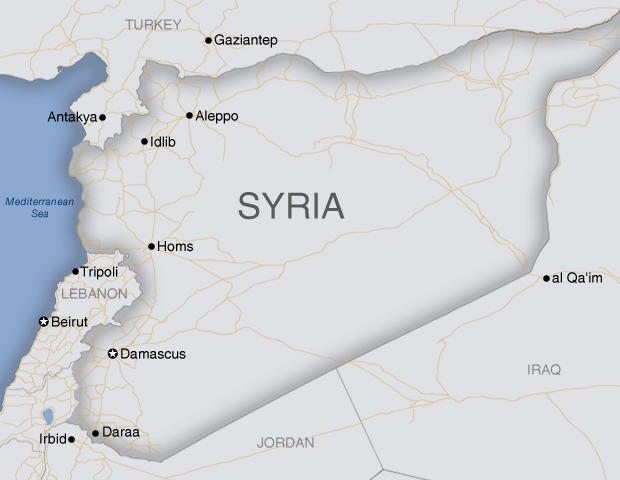Syria's Assad makes rare public appearance
AMMAN, Jordan Syrian President Bashar Assad made a rare public appearance Wednesday, visiting a Damascus power station just a day after a powerful bomb hit the capital, Syria's state television reported.
The broadcast showed Assad speaking to staff on the occasion of International Workers Day, or May Day, at the Umayyad Electrical Station in the Tishrin Park district. Similar still images also appeared on a page used by the Syrian presidency on the popular social network Facebook.
At least 14 people were killed in the bomb blast on Tuesday -- the second attack in the heart of the capital, Assad's seat of power, in just two days.
There were reports of two more explosions in the Syrian capital on Wednesday. The Al-Arabiya television network reported two blasts near a security headquarters building in the central Bab Masli area of Damascus. CBS News could not immediately confirm the report.
- Hezbollah warns of possible Syria involvement
- Syrian rebels to get 1st direct U.S. aid
- Graham: "Growing consensus" for U.S. action in Syria
Rebels seeking to topple Assad have been trying to create a supply line from Jordan, so that arms bought by Saudi Arabia and Qatar can be shipped in for assaults on the city they hope to capture.
The television showed Assad, confident and wearing a dark business suit, talking with workers and shaking their hands. Later he is shown encircled by the staff in a garden.
Meanwhile, the Turkey-based Syrian National Coalition, in its first public response, rebuked the leader of Lebanon's Hezbollah militant group, a day after he said that Syrian rebels will not be able to defeat Assad's regime militarily.
Sheik Hassan Nasrallah had warned that Syria's "real friends," including his Iranian-backed militant group, could intervene on the government's side if the need arises.
The coalition said it hoped Hezbollah would stay out of the Syrian war, and urged Lebanon to "control its borders and urgently stop, through all available means, the military operations attributed to Hezbollah in areas close to the Syrian border."
It also blamed Assad's regime for "destroying" religious Muslim and Christian sites.
Hezbollah, a powerful Shiite Muslim group, is known to be backing Syrian government forces in Shiite villages near the Lebanese border against the mostly Sunni rebels fighting to topple Assad. But Nasrallah's comments were the strongest indication yet that his group is ready to intervene more substantially on the side of Assad's embattled regime.
"You will not be able to take Damascus by force and you will not be able to topple the regime militarily. This is a long battle," Nasrallah said, addressing the Syrian opposition. "Syria has real friends in the region and in the world who will not allow Syria to fall in the hands of America or Israel or the Takfiris."
Takfiris is a term used to refer to followers of an al Qaeda-like extremist ideology.
Hezbollah and Iran are close allies of Assad. Rebels have accused both of them of sending fighters to assist Syrian troops trying to crush the 2-year-old anti-Assad uprising, which the U.N. says has killed more than 70,000 people.
